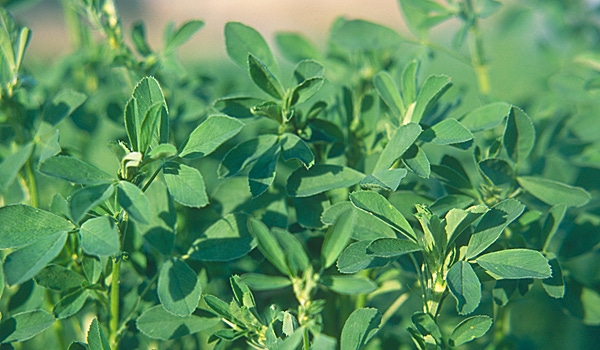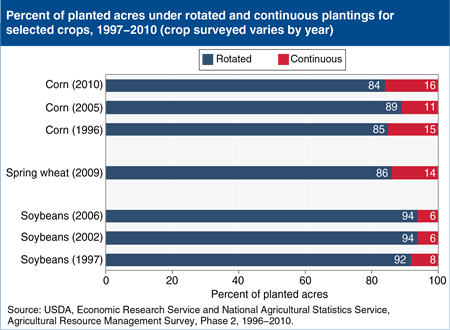April 15, 2013

Crop rotations are planned sequences of different crops on the same field over time. Rotating crops provides productivity benefits by improving soil nutrient levels and breaking crop pest cycles. Farmers may also choose to rotate crops to reduce their production risk through diversification or to manage scarce resources, such as labor, during planting and harvesting time. One indication of how prevalent crop rotations are in U.S. production is how relatively rare it is for farms to continuously produce the same crop from year to year on the same field. For corn, soybean, and wheat, between 84 and 92% of acreage involves some sort of rotation. This chart is found in the March 2013 Amber Waves finding, While Crop Rotations Are Common, Cover Crops Remain Rare.

You might also like:
Alfalfa-corn rotation increases yield and reduces nitrogen fertilizer needs
What are the penalties of cropping corn continuously?
You May Also Like




